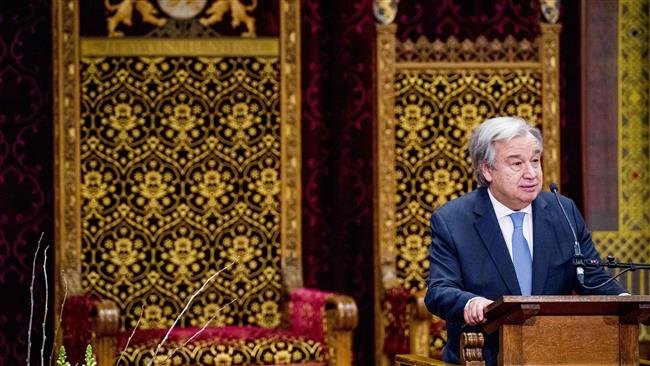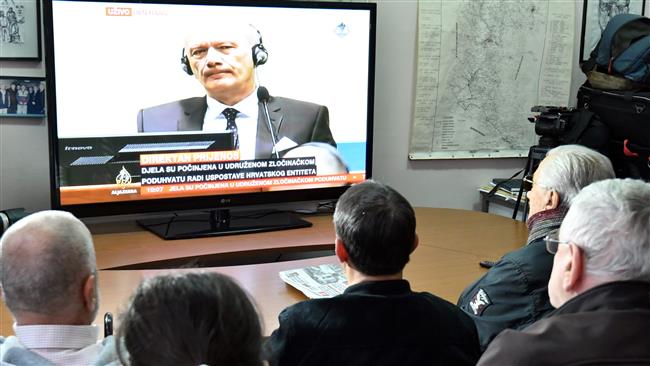International Criminal Tribunal for Yugoslavia to close after nearly 25 years
The International Criminal Tribunal for the former Yugoslavia (ICTY) is to wrap up its prosecution of crimes committed during the Balkans Wars of the 1990s nearly 25 years after its inception by the United Nations.
The tribunal is closing its doors with an official ceremony on Thursday in The Hague, the Netherlands, where it is based.
Dutch King Willem-Alexander and UN Secretary General Antonio Guterres attended the event, which marks the end of meting out justice for nearly a quarter of a century, prosecuting and sentencing top military and civilian leaders of the war in the Balkans.
Of a total of 161 indictments filed during the court’s mandate, 90 people were convicted and sentenced, 19 were acquitted, 37 cases were withdrawn and 13 were refereed to local courts.
One of the last court sessions, however, proved to be a full drama as former Croat general Slobodan Praljak drank poison in the courtroom in late November to protest the upholding of his convictions as a war crime.
He shortly died and joined a list of suspects who never served their sentences, including former Yugoslav president Slobodan Milosevic, the man accused of being the driving force behind the Balkan wars. Milosevic died in the court's custody in 2006 before his trial ended.
The ICTY is respected by many for the sentences it meted out to Bosnian Serb military chief General Ratko Mladic and his political master Radovan Karadzic for the role they played in the 1995 massacre of some 8,000 Bosnian Muslim men and boys in the eastern enclave of Srebrenica and other crimes.
The UN chief said during the closing ceremony that the court would be reminded by many for its key legacies, which include a huge archive of evidence and court records.
“These records ensure that the world will not forget that history cannot be rewritten,” said Guterres, adding that those records would be a major resource for battling revisionism and denial in the future.
VIDEO | Yemenis praise the military for its successful operations against Israel
VIDEO | Israel continues to bomb Gaza homes
VIDEO | An insider's view of the country: Meybod City in Yazd
‘All wars have rules. All of those rules have been broken’ by Israel
VIDEO | Report flags India’s violation of rights of Rohingya detainees
Turkey's foreign minister meets Syria's de facto leader in Damascus
VIDEO | US Syria plots
'Next to impossible' to rescue patients from Gaza's Kamal Adwan Hospital: Director














 This makes it easy to access the Press TV website
This makes it easy to access the Press TV website